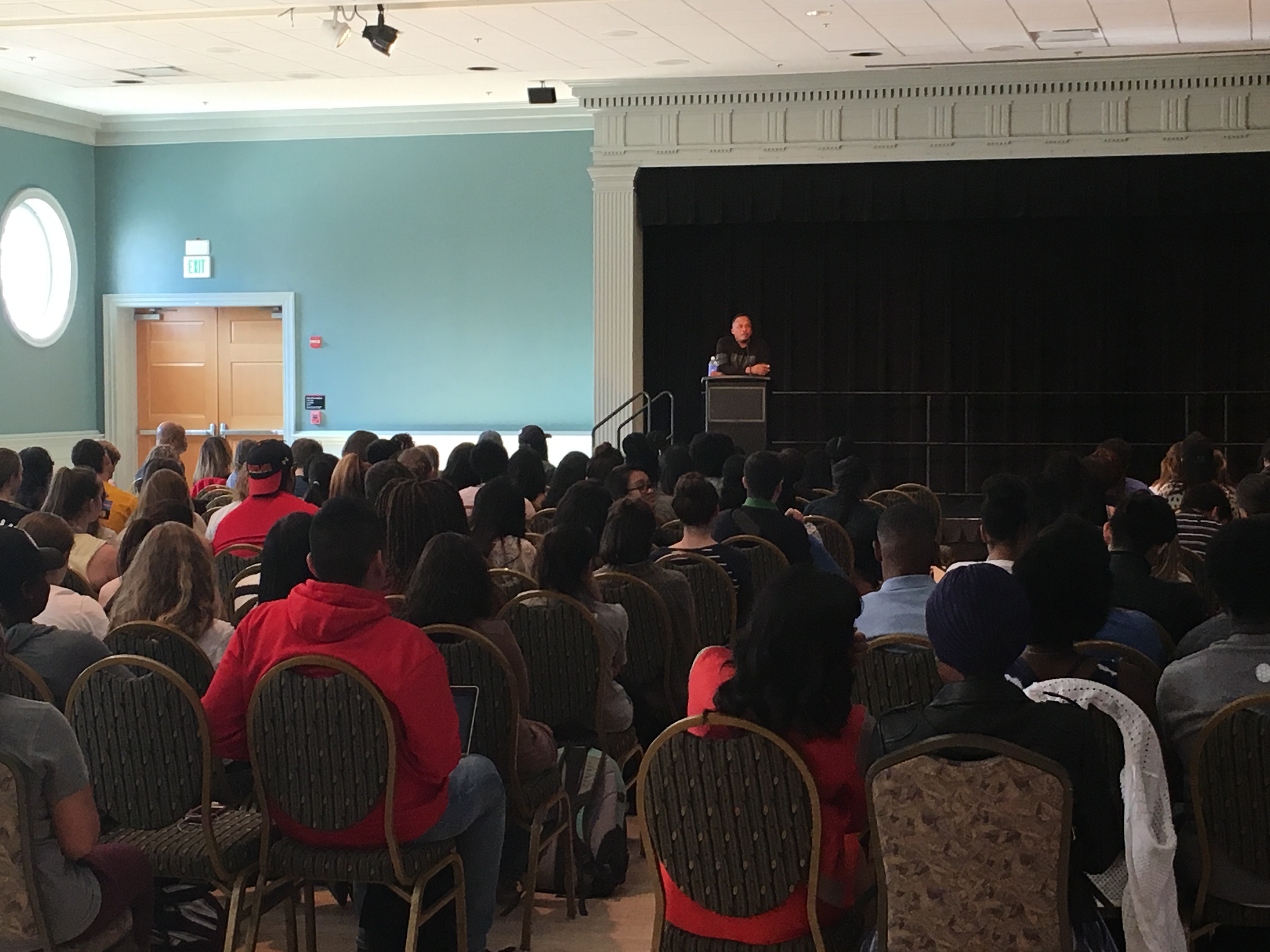By Samuel Antezana
For the Diamondback
Junior Abigail Mendoza lives in a suburb outside of Baltimore City, but her understanding of gentrification and race inequality grew through commutes to her school in the city.
“You’ll be driving through and you’ll see abandoned houses that have so much potential,” said Mendoza, a family science major. “But then you drive a block down and you see businesses like Chipotle and Starbucks. It’s jarring to actually see it for yourself. I didn’t know it was so prominent.”
Mendoza, along with about 100 others, listened to author D. Watkins, who wrote The Beast Side: Living and Dying While Black In America, as he spoke about issues such as gentrification, police killings of African-Americans and his experiences growing up in Baltimore. The event was hosted by the Association of Graduate Students in Public Health at Stamp Student Union on Wednesday afternoon.
Watkins discussed the effects systemic oppression can have on black people and emphasized the need for change through education and activism.
“Activism has many faces,” Watkins said. “I make a difference through reading; that’s the most powerful way for me to change the world — or at least the world that I live in — or at least create some type of infrastructure for the next generation to do things on a higher level.”
Watkins described one moment when he was teaching an English class. He asked his students what they were reading, and almost all of his students said they weren’t reading anything. He talked about receiving books written by Mark Twain in high school, but stories such as Huckleberry Finn or Tom Sawyer never connected with him or other students of color.
“Living in a place like Baltimore City, you are exposed to everything, and the people you look up to are exciting, interesting, and they have stories and they are colorful,” Watkins said. “Then you walk across the street to a school, and the only thing your teachers are talking about is a slave chasing a kid. … It didn’t really speak to us.”
Watkins said he wanted to be the one to make a difference in the school curriculum in terms of reading. His book is now taught in schools in Washington and Baltimore to engage students, he said.
He also highlighted how reading used to be illegal for slaves and that their oppressors did not want them to gain any sort of knowledge or have the ability to conceptualize freedom.
“I think about today, in a society filled with people that can’t think critically, it’s pretty good if you’re an oppressor,” Watkins said. “This group of people is going to go to jail — we can make money off that. This group of people is going to get HIV — we can make money off that. This group of people is going to die — we can make money off that, too.”
Craig Fryer, a professor in the behavioral and community health department and associate director of the Maryland Center for Health Equity, attended the event Wednesday and said Watkins had positive insights to share.
“Watkins is not a developer, he’s not a policymaker, but he does have a very unique lense and [is] looking at very complex issues that represent our social ills not only in Baltimore, but across the whole U.S.,” Fryer said.
Watkins said reading is one of the best ways young people can combat ignorance, gain knowledge and get excited about telling their own stories.
He acknowledged that the world does not change overnight and that changes will be seen throughout many lifetimes — but only if people can create a culture of sharing their ideas.



